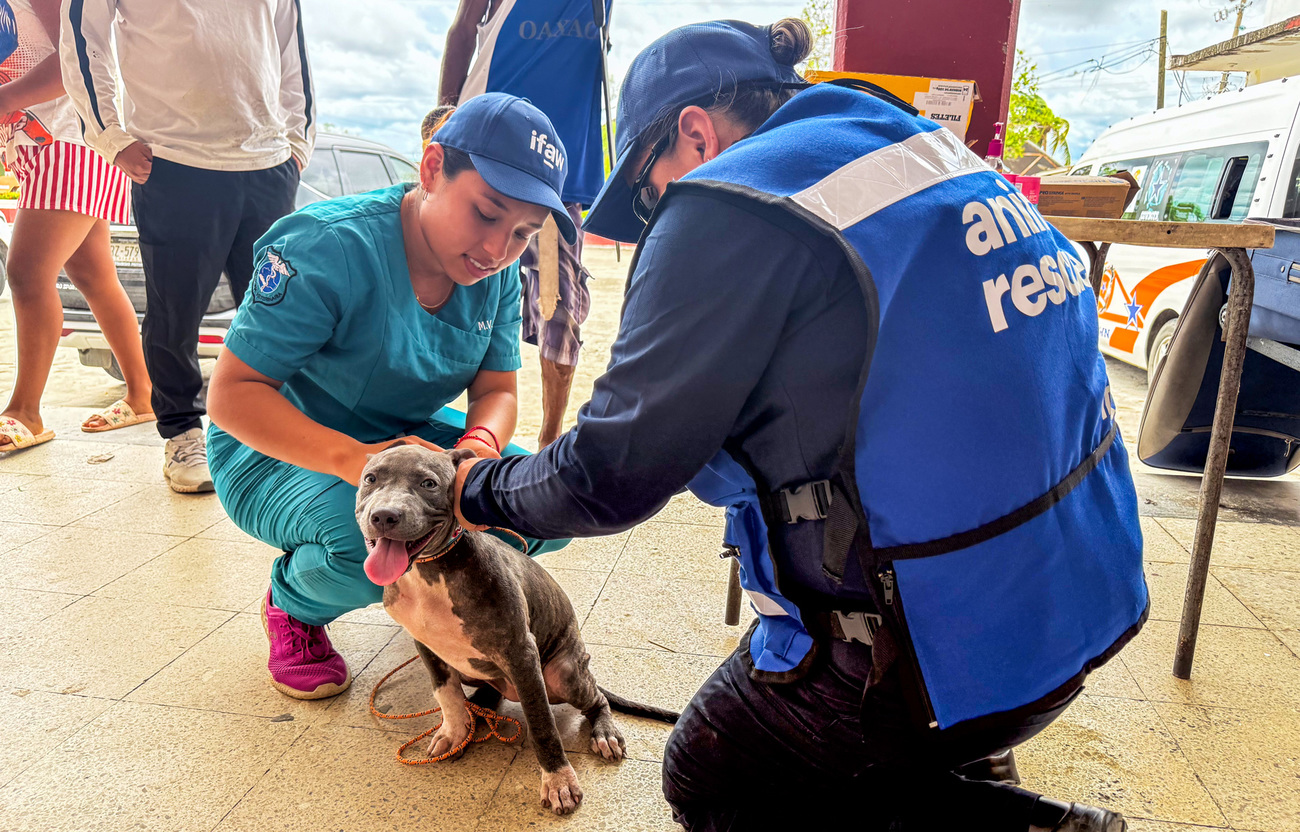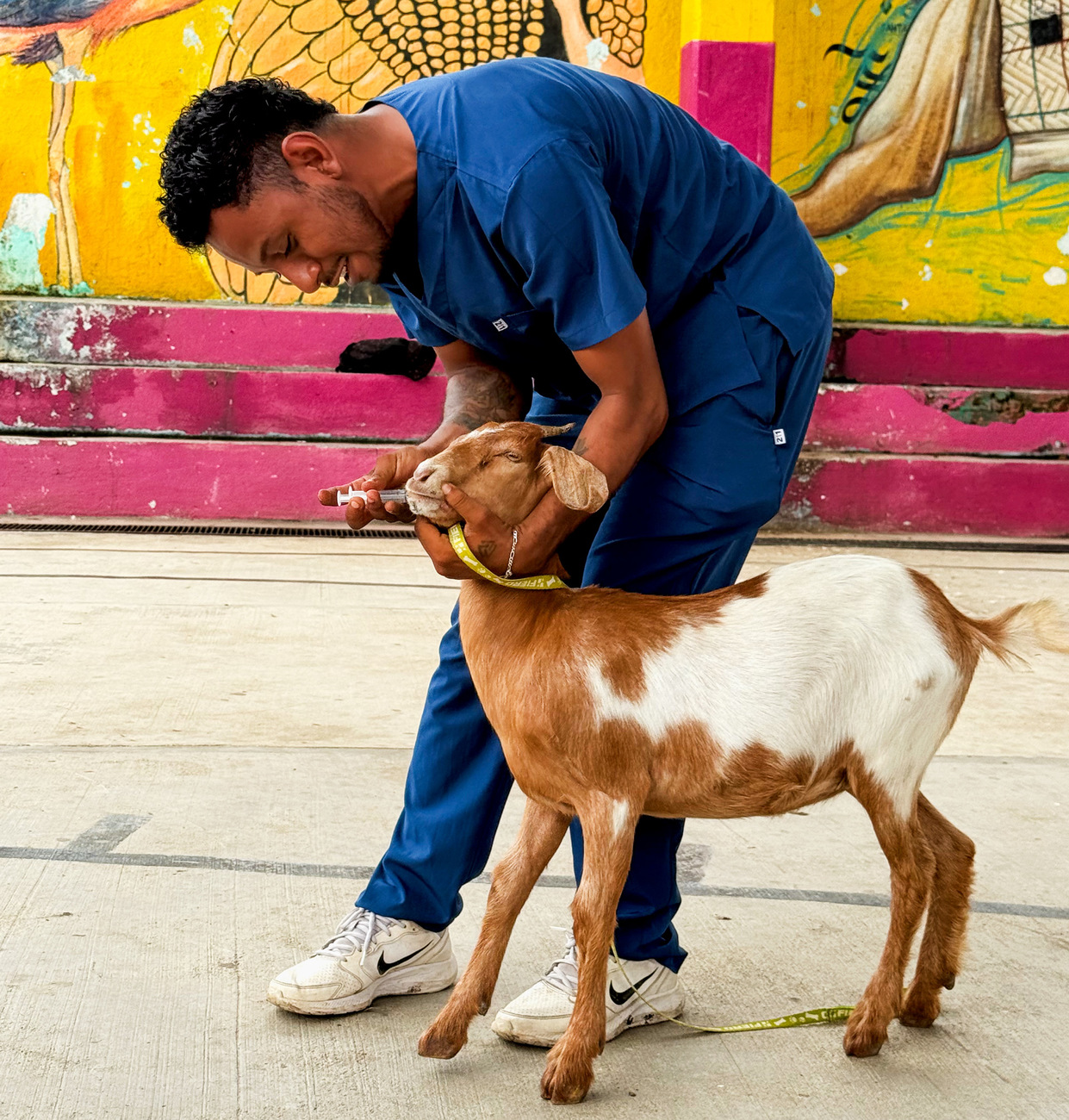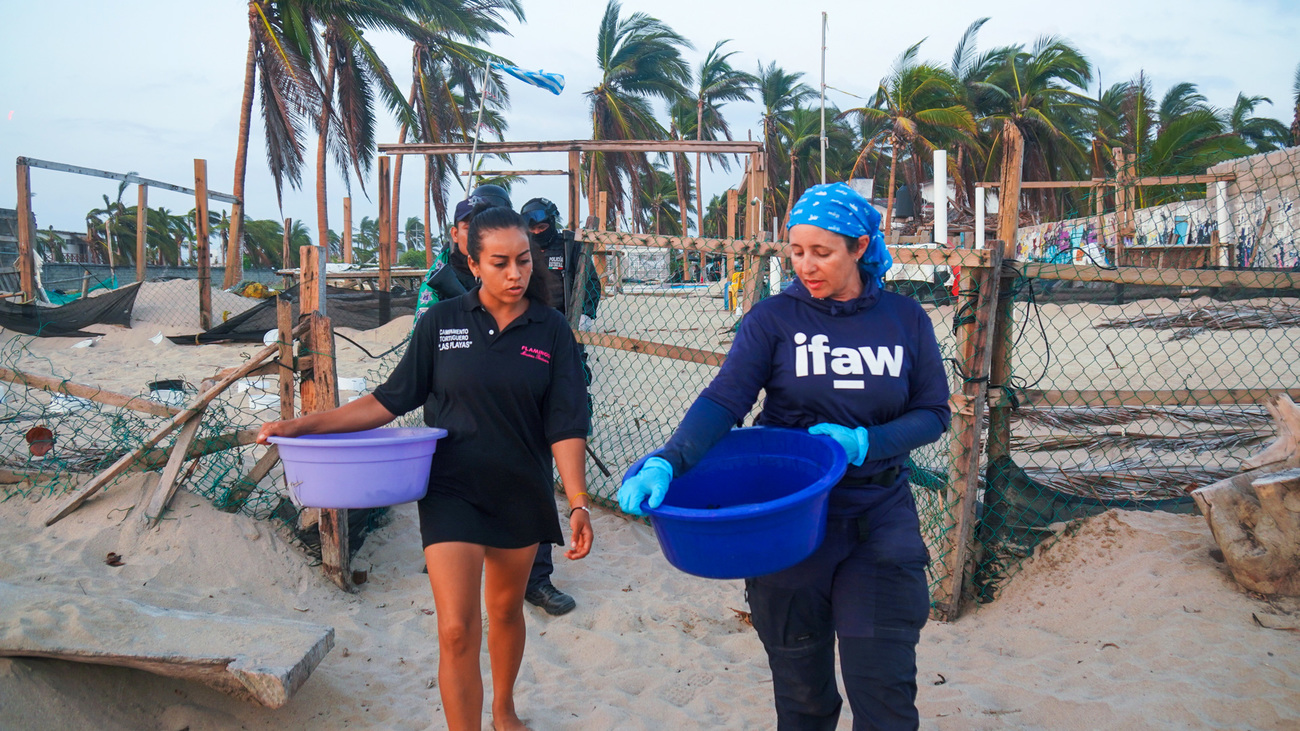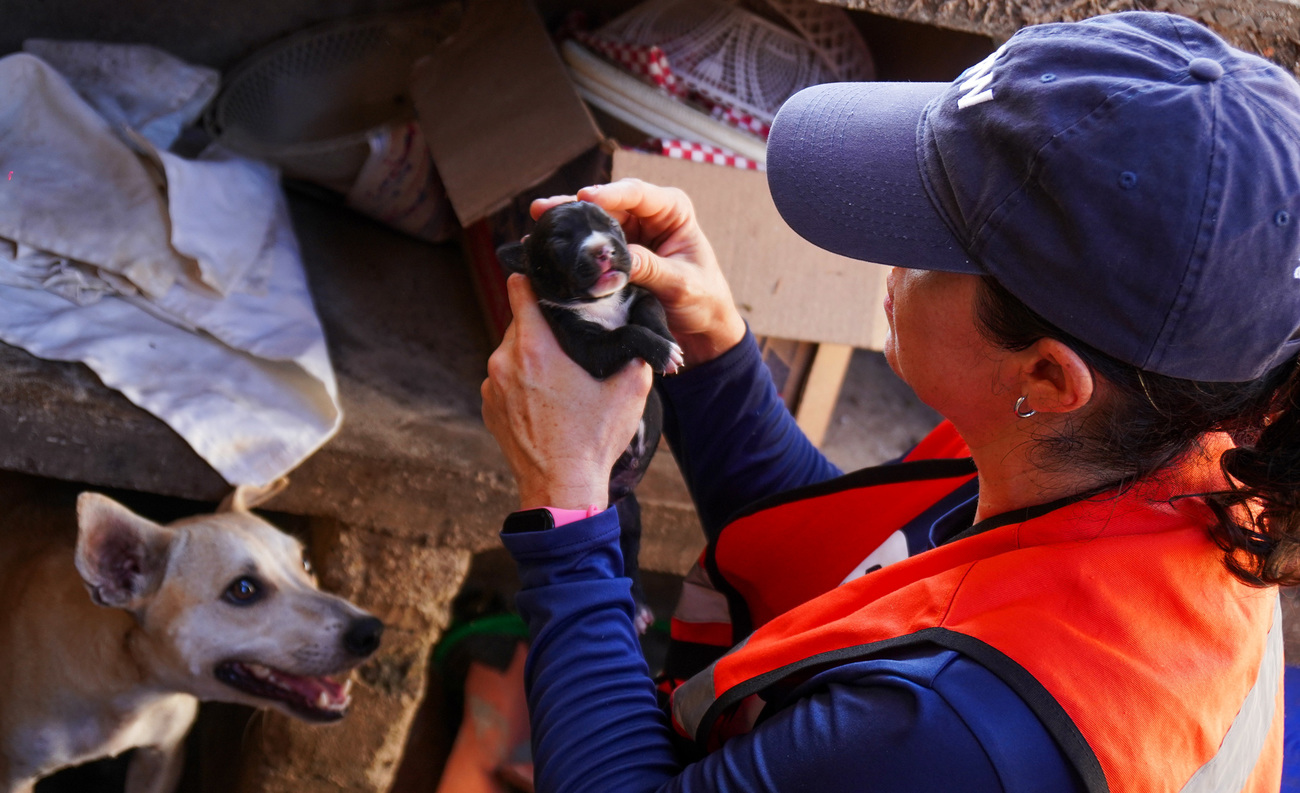IFAW supports disaster relief in Hurricane Erick’s aftermath
IFAW supports disaster relief in Hurricane Erick’s aftermath
Along with our partners Universidad de la Costa, we have distributed more than one tonne of animal food in Oaxaca in three days. Being on the ground within these communities, we’ve also helped more than 150 animals with medications and veterinary treatment—including sheep, chickens, parrots, dogs, cats, and goats. Our provision of tarps has helped animals and their families, many of whom are lacking shelter, stay dry.

Two leatherback turtle camp sites have been seriously impacted—but as the camp season starts in August, we luckily have time to help our local partners prepare and continue their efforts to save this critically endangered species.
Playing a vital role in this response, veterinary students from the university have been able to see up close the needs of local communities and gain hands-on experience and knowledge from IFAW’s disaster response team, developing skills they will carry with them to future response operations.

June 24, 2025
In Hurricane Erick’s wake, IFAW’s disaster response team is deploying to impacted areas in Oaxaca to assist in disaster relief work.
We have issued an emergency grant to the Universidad de la Costa. Together with staff from their veterinary faculty, we will provide free veterinary care and food for community animals and backyard animals affected by the hurricane.

Animal sanctuaries and wildlife centres are also in need, with animals under their care requiring food, shelter, and medical attention. In Chacahua National Park, there are several marine turtle conservation camps in Bahia de Chacahua that were affected by the storm. As we did during Hurricane Otis, our team will support them in protecting the nesting sites and any hatchlings. In Otis’ aftermath, IFAW also provided capacity building and response training to government authorities and local partners—and today, we are seeing the results of these trainings in action.
As we deploy to the area, your donation is urgently needed. Please help us provide critical aid to animals who need it most.
As Hurricane Erick strikes Mexico, IFAW prepares to help animals in danger
June 20, 2025
Hurricane Erick has made landfall along the Pacific coast of Oaxaca, Mexico, reaching Category 4 at its strongest, bringing sustained winds of up to 200 kilometres per hour (125 miles per hour) and extreme rainfall damage. The storm is forecast to cause catastrophic flooding and mudslides.

The region includes internationally protected wetlands, home to endangered sea turtles, migratory birds, and diverse aquatic wildlife. These fragile habitats—and the communities and animals that rely on them—are now under severe threat.
IFAW preparing an urgent response
We are in communication with local authorities and partners to assess the situation and prepare to deliver critical aid to animals affected by the storm. Our focus includes:
- Helping community animals: Many pets, working animals, and livestock are at risk of injury, separation, or abandonment. We’re preparing to provide emergency veterinary care, food and water, and potentially temporary shelter for displaced animals and their families.
- Supporting wild animals: Animal sanctuaries and wildlife centres may be impacted by the storm, and animals under their care will need food, shelter, and medical attention.
- Protecting endangered sea turtles: Just as we did during Hurricane Otis, we stand ready to support turtle conservation camps that protect nesting sites and hatchlings—many of which lie directly in the storm’s path.

IFAW teams remain on standby to assist with emergency rescue operations and relief efforts, depending on how the crisis evolves over the coming hours and days.
In 2023, during Hurricane Otis, IFAW acted quickly to support communities and conservationists working along the coast, including the vital sea turtle camps that protect critically endangered species.
Right now, your donation is urgently needed to help us act quickly. With your support, we can provide food, shelter, and veterinary care for animals in crisis.
Related content
Our work can’t get done without you. Please give what you can to help animals thrive.